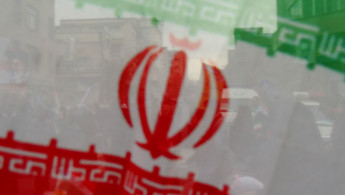Iranian lawmakers file motion for leaving Nuclear Non-Proliferation treaty
The move appears to be the latest from Tehran to pressure European powers to salvage the more recent nuclear deal of 2015.
A report on the assembly's news site ICANA said a minimum number of MPs had signed a request to parliament's managers to arrange a debate on the motion for Iran to take the far-reaching step of leaving the NPT, which was first ratified in 1968.
Last week, Iranian Foreign Minister Mohammad Javad Zarif said Iran could withdraw from the NPT if European countries refer the country to the UN Security Council over the 2015 deal.
Read More: A decades-long battle: The Iran-US rivalry explained
Lawmakers in the past have sometimes withdrawn their signatures seeking debates on motions about nuclear and other issues.
In order for the motion to become law, the proposal needs to be passed by lawmakers in two readings and then ratified by the Guardian Council, which is in charge of confirming that new bills do not contradict religious laws or Iran’s constitution.
Iran's Supreme Leader Ayatollah Ali Khamenei, the highest authority in the Islamic Republic, has the final say on all state matters like Tehran's nuclear policy.
The 1968 treaty has been the bedrock of nuclear arms control since the Cold War, and if Iran were to leave, it could cause yet more tension with America, with whom it stands on shaky ground after famed commander Qasem Soleimani was killed by a US airstrike earlier this year.
It was the foundation for the 2015 deal Iran signed with world powers, including the US, whose president at the time, Barack Obama, had brokered the deal before his successor Donald Trump, ended when he removed the country from the treaty in 2018.
Trump deepened fractures between the two countries after he re-imposed and then doubled down on sanctions that have plunged the country into economic difficulty.
 |
| Removing Iran from the treaty could cause problems for Iran [Getty] |
Iran has responded by gradually scaling back its commitments, although it says these steps are reversible if the European powers can salvage the deal by shielding Iran's economy from US penalties.
Britain, France and Germany formally accused Iran on 14 January of violating the terms of the agreement to curb its nuclear program, which eventually could lead to the reimposing of UN sanctions lifted under the pact.
'No thanks!'
"Iranian Foreign Minister says Iran wants to negotiate with The United States, but wants sanctions removed. @FoxNews @OANN No Thanks!" Trump tweeted in English on Saturday and later in Farsi.
Iran's Foreign Minister Mohammad Javad Zarif responded to Trump's tweet on Sunday with an excerpt from the interview reaffirming Iran's willingness to negotiate if sanctions are lifted.
"@realdonaldtrump is better advised to base his foreign policy comments & decisions on facts, rather than @FoxNews headlines or his Farsi translators," Zarif added to the tweet.
Tensions have soared between Tehran and Washington since Soleimani's death. Iran retaliated five days later by launching a wave of missiles at American troops stationed in Iraq, injuring more than 30 US soldiers.
On Saturday, Iran condemned what it called the "illegal and inhumane treatment" of its citizens by US border security officers after reports an Iranian student was deported despite having a valid visa.





 Follow the Middle East's top stories in English at The New Arab on Google News
Follow the Middle East's top stories in English at The New Arab on Google News


